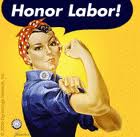
by | Dec 17, 2012
 It’s been a brutal stretch for Republicans since November 6th and I hate to pile on, but one issue facing the Iowa Legislature this session reflects what a perilous situation we could be in as a political party. That issue is automated traffic enforcement—which, at least so far, applies to only red light and speed cameras.
It’s been a brutal stretch for Republicans since November 6th and I hate to pile on, but one issue facing the Iowa Legislature this session reflects what a perilous situation we could be in as a political party. That issue is automated traffic enforcement—which, at least so far, applies to only red light and speed cameras.
In spite of the disaster that was the 2012 election here in Iowa, perhaps the most depressing and telling sign of how far we have to go is that a clear majority of Legislators, and apparently Iowans, are not yet willing to say definitively that automated traffic enforcement is unacceptable. By default then we are saying we do not object to having cameras take pictures and videos of us in order to deliver substantial fines to our mailbox some 10 days later.
What I have heard from most legislators on this lately is that they believe from talking to their constituents this is close to a 50-50 issue. I don’t know if that’s accurate or not, but if it is then a majority of Conservatives and Libertarians are going to be in for an even worse ride than we previously thought.
I know there are several smart and well-reasoned Republicans making arguments for these cameras who see nothing wrong with them. I have to believe that a majority of these folks haven’t had the pleasure of receiving a $110.00 ticket in the mail from a non-memorable “infraction†that took place a week and a half before. And that these same people haven’t gone to the website link listed on the ticket to have the spooky experience of watching a video of them driving on a public road days before—yes this is how it works.
All the arguments against the cameras are well documented—no right to face your accuser, you may not have been driving, you could get numerous tickets before being aware you got any, questionable impacts on safety, the fact it is yet another increased revenue stream for government, etc.—but the biggest one to me is the overarching issue of what tactics we allow law enforcement and government to deploy against us. As we know too well, once we allow government to record us autonomously and levy fines against us for traffic violations, it is unlikely to stop there.
To all the proponents on this issue on both sides of the isle I ask the following—would you support having speedometers tied to computers in your vehicles which would use GPS coordinates to determine the speed limit and then issue you a ticket sent to your e-mail each time you went 8-10 mph over said limit? The analogy isn’t perfect…but it’s pretty close. Hard to imagine anyone saying yes—let alone a majority.
The Politics
The politics are interesting here too. In short, the Republican voting coalition needs, to a large degree, to include Libertarians or else they will win nothing moving forward. No matter how fiscally conservative they are, be assured that if the Republican Party here in Iowa and nationally will not stand up against video surveillance and mail delivered fines then Libertarians will never vote republican in a large majority. In fact, you would be hard-pressed to think of an issue that could more quickly lead to a third party—and hence the death of the Republican Party. Frankly, the truth is I wouldn’t blame them. If, as the party of small government and freedom, we won’t even stand up on this blatant of a “Big Brother†issue, then the jig is up.
The reason why the Libertarian coalition is so crucial is perhaps even more interesting. First and foremost you have the stubborn friction between the traditional voting blocs Republicans rely on to win elections and the current electorate. The largest single coalition in the Party is the religious-wing (in a society that is, for whatever reasons, growing more liberal on social issues), and the fastest growing new members of the electorate by a landslide are Hispanic voters (which we consistently lose by 30+ points). This is of course added to the fact that Republicans routinely lose the women vote by close to double digits (and they have voted in a greater number than men in every Presidential election since the 1980’s).
In pointing these things out I am in no way saying that these differences and pitfalls can’t be mitigated by the Republican Party, and am certainly not taking a position here on which coalitions should or shouldn’t prevail. The point I make is that because of these problematic dynamics for the Republican Party—a clear majority of the pragmatic Libertarian vote is absolutely essential going forward. In terms of the “going forwardâ€, Libertarians are by and large younger Americans that will be voting for generations (a segment of the youth vote Republicans could actually win), as well as the fact that Libertarian leanings, by nature, will grow larger the larger our government itself grows.
Tying It All Together
To be clear, this is not to say that Republicans would ever run on legalized prostitution or drugs, but it is to say that not standing up against something as symbolic of government overreach as traffic cameras would be a major mistake.
Both politically and on principle, fighting hard for a bill next session in the Iowa Legislature banning all automated traffic enforcement is a no-brainer. Not doing so would be abandoning the mantra of our Party—which is to stand for more freedom, less government intrusion, and less confiscatory power from the political class.
If as a Party we either fail to lead this charge in the first place, or do so and find a majority of Iowans don’t agree with us, there will be ramifications in future elections. As dim as the landscape looks now for Republicans it’s hard to imagine how much uglier it could get…but I know it would be much worse than $110 ticket in your mailbox.

by | Dec 4, 2012

When the inevitable battle with public-sector employees in Iowa begins to rage here in the next few months and every elected Democrat in the state marches in lock-step with union negotiators, the following will help you understand this phenomenon.
Not only does their ideology lend itself to supporting the concept of an organization/government “protecting” people from the free market–it turns out that this cast of Democrat legislators largely are the unions.
Iowa House Democratic Caucus by Occupation
Below is a look at the occupations of the 46 Democratic members of the Iowa House that will be in office the next two years.
Teachers/Principals former and current = 12
Attorneys = 7
Occupation Unclear = 4
Social Work = 2
1 Each of the Following— Realtor, Farmer, Pharmacist, Grants Coordinator, Funeral Home Business, Golf Course Owner, Banker, Accounting Clerk, Head of Non-Profit Organization, (12 more random single occupations not listed here).
Number who have direct/indirect past or current union backgrounds (mostly public-sector) = 21
Trends
By far the biggest takeaway here is that of the 42 who had a clear current or former occupation that could be found on their legislative page or campaign website, a whopping 21 of them had direct connections to unions–the vast majority of which were public-sector. That is a full 50% of the caucus and does not even include Bruce Hunter, a ranking member of the Labor Committee whose wife is the State Political Director of the AFL-CIO, or Anesa Kajtazovic who goes out of her way to mention in her bio that at a young age her father’s experiences in the workforce led her to be “reminded how important union representation can be.”
The second biggest trend is that 12 of the 42 members with clear employment histories are current or former teachers. This explains why year after year we have a fight in the legislature to increase spending on education by 4% for “allowable growth”–not to mention why firing a teacher is almost unheard of, why there is currently no substantive teacher evaluation, and why there needs to be a Republican push just to ensure that students aren’t passed out of the 3rd grade without being able to read at the proper level, a policy that would seem to be the epitome of common sense. What is not so easily explained is with such a large number of educators doubling as legislators and a majority of the state budget dedicated to it every year, how are the results embarrassingly insufficient in such a large number of districts.
Revealed above is the gross disproportion of representation that unions have in the General Assembly in comparison to the percentage of Iowa’s workforce that they account for. As of 2011 Iowa had nearly 1.4 million people in the workforce. Of this number only 155,000 were in unions (11.2%) and an additional 32,000 were effectively represented by union negotiations while not being listed members, thus bringing the total number of employees directly or indirectly represented by unions to 187,000, or 13.5% of the workforce. Of note here is that the 1.4 million Iowa workers number actually excludes those self-employed so the percentages represented by unions are actually slightly smaller than those listed above. Even taking the larger percentages, while only 13.5% of Iowans are either in or governed by unions, in the Iowa House’s Democratic caucus a full 50% have direct or past connections with unions.
Coming Up
Before the session gavels in I will also do a breakdown of the Republican Caucus by occupation in both Houses (unless one of the Liberal bloggers reading this wants to save me the leg work). It would be very interesting for comparison purposes and may further explain the massive partisan divide we see year after year–my guess is the top 3 for Republicans in some order are small business owners, lawyers, and farmers.
Later this week we will take a look at 3 specific cases that symbolize this dynamic of union/citizen representation in the House, and next week we will have a breakdown of the occupations of the Democrat Caucus in the Iowa Senate. This will be followed by a look at the proposals offered by both the unions and the governor and what is likely to unfold on this front next session.

by Steven Waechter | Nov 28, 2012
 The tax credit for wind energy is back on the agenda, and Iowa’s own Chuck Grassley and Terry Branstad are taking leadership roles in fighting for the extension, going so far as to appear together at a press conference about it.
The tax credit for wind energy is back on the agenda, and Iowa’s own Chuck Grassley and Terry Branstad are taking leadership roles in fighting for the extension, going so far as to appear together at a press conference about it.
Wind energy is my favorite target at the moment, because it combines socialist economics, corruption, aesthetic vandalism, junk science, and cynical political machinations – all melting together into a hideous soup of wasted money and ruined skylines.
Tough Love
After the last election, targeting two of Iowa’s best known Republicans for criticism is perhaps a risky business, but for those who think I – with my dislike of leftists – shouldn’t be doing it, I offer the following historical analogy:
In the days of the Roman legions, the centurions were legendary for their swift discipline. One centurion developed a habit of breaking his staff over the backs of soldiers who had acted disobediently. “Give me another,†he would say to his aide when it happened, and it happened so often that “give me another“ became his nickname . In this way, withering cruelty became not a malicious attempt to destroy, but deep concern for long-term wellbeing.
Well, give me another.
Political Venture Capital
Wind energy is an odious political scam. First of all, the industry cannot survive without government subsidy, namely, the tax credits. The wind industry makes profits not from the power grid, but from their tax returns.
It is also ridiculously expensive and underproductive. When Alliant Energy built the Whispering Willows wind farm in Franklin County, they petitioned utilities regulators for a rate hike to help cover the cost. The market had reached a price for electricity, generated by coal, but at that price the wind farm was not economically viable – it wouldn’t produce enough electricity to cover its cost.
They built it anyway. Even though the money in the wind industry is earned on the tax return and not the power grid, they didn’t want to eat an operating loss, so rates have to increase. Consumers in central Iowa found themselves paying more money for the electricity they used – still mostly generated from coal – to pay for a wind farm erected so the utility could earn a tax credit.
The utility sells the power and claims the credits; the landowners earn fees for having these modern art sculptures on their land; the turbines produce just enough electricity to power a massive, metaphorical conveyor belt carrying money from the pockets of poor customers to the rich and the politically-connected… Because that is progress these days.
Grassley stated at the recent news conference that “We have a 20 year investment in this… it would be terrible to throw a way a 20 year investment if it will mature in a short time.â€
We have been waiting for the wind energy industry to mature since the days when pioneer farmers could order a windmill from the Sears and Roebuck catalog. Most of them were dismantled after rural America was electrified. Now, the fantasy is that the same technology that was felled by electricity will be the future of electricity.
Central Dreaming
Nothing becomes outdated faster than a fantasy about the future. This is never more true than when the fantasy has its birth in the minds of politicians; a future brought to you by the same people who bring you inflation, wars, and prisons.
The general public is also rapidly becoming too poor to cover higher utility bills, but wind energy fits into the political rhetoric of our time and so they charge forward. Wind energy doesn’t make power cheaper, reduce our trade deficit, strengthen the dollar, or generate tax revenue – but it can get you elected.  It employs only a handful of people, especially when compared to the coal industry – which politicians have threatened to kill. The turbines themselves are insanely ugly, and provide a far too convenient backdrop for political photo opportunities.
I understand that this is politics. I also object to the fact that this is politics. The experience of subsidized public housing should have been enough to dispel the urge to make fantasy into reality, but it wasn’t. We will all pay the price. Literally.

by | Nov 27, 2012
 ((This is second installment of a 2 part piece, to start with Part 1 click here))Â
((This is second installment of a 2 part piece, to start with Part 1 click here))Â
In the end, where we failed was to reach what is popularly called the Low Information Voter. These are voters who for whatever reason get very little to no political information, and what they do get is confined to a very narrow set of media vehicles. By targeting local news and other prime listening/watching avenues, the Democrats were successful in reaching those voters, supplemented by their usual other logistical operations of doorknocking, calling, and absentees.
We did quite a bit better this time on the logistical side with doorknocking, calling, signs, and candidate events. The Victory centers, though not perfect, were an improvement on the past. I believe we can build on that by better coordination with the county central committees and their individual headquarters operations. I believe this will be possible primarily by getting as early of a start as possible in the 2014 election cycle, and begin coordinating our logistical effort, as well as raising the necessary funds within the same timeline to support those efforts.
A big area that helped us was absentees. Republicans have greatly improved on their game from even ten years ago, when Democrats would be the vast majority of absentee votes. Though they are still ahead, Republicans largely narrowed that lead in 2012. We can build on that success in 2014 to get even more marginal GOP voters to cast a ballot in our GOTV operations.
One factor that hurt us in a big way was that the top ticket in Mitt Romney had short to no coattails. Though it didn’t seem to effect incumbents much, any challenger or newcomer in an open seat, from a preliminary analysis of the numbers, was drug down as voters seemed to vote the downticket to the supervisor level in line with their vote in the presidential. This will not be an issue so much in the mid-terms, at least for the state races, particularly if Governor Branstad would run again.
We also had a difficult time competing with money. We always have structural problems in this area due to the usual suspects of Democrat contributing groups, especially the unions, but part of this was from to the unpopularity in the leadership change of the Republican Party of Iowa. They simply were not in the game, leaving the heavy lifting to be done by the PACs and the Legislative Majority funds as well as the local entities and the campaigns themselves. It is necessary I believe that we have all entities engaging in 2014, and make whatever changes necessary at the leadership level to ensure that we have all the assets we can have helping us to win the mid-terms. I believe better targeting will also use our funds in most efficient and effective way possible.
The best advice I can give to Iowa GOP activists wanting to gain more congressional seats, as well as winning a majority in the state senate, is to not dwell to long on our failures or disillusion ourselves with doom and gloom. Rather, properly analyze what went both right and wrong in 2012 and build on that, then go right back at them for 2014, and most importantly begin as soon as possible. We are not by any means out of the picture, and I believe control of both the legislature and governor is well within our grasp.

by | Nov 23, 2012
 Below is a brief overview of a bi-partisan initiative that is set to be brought to the floor of the Iowa Legislature when it gavels in next session. Once it is brought to the floor I will publish a more detailed look at it. As noted on Wednesday, Sen. Brad Zaun, Rep. Ako Abdul-Samad, and Rep. Kevin Koester have already signed on to support the measure and it will be interesting to see the reaction from both sides once the session starts.
Below is a brief overview of a bi-partisan initiative that is set to be brought to the floor of the Iowa Legislature when it gavels in next session. Once it is brought to the floor I will publish a more detailed look at it. As noted on Wednesday, Sen. Brad Zaun, Rep. Ako Abdul-Samad, and Rep. Kevin Koester have already signed on to support the measure and it will be interesting to see the reaction from both sides once the session starts.
———————————————————————————————
The Every Iowan Economic Empowerment Act or The Empowerment Act takes advantage of our state’s strengths in two ways.
I. Rewarding Hard Work & Sacrifice Provision
The first component of The Empowerment Act rewards the hard work and sacrifice of Iowans by eliminating taxation on overtime.
A. If an Iowan works an hourly or hourly jobs, after 40 hours state taxation ends. No hour worked over 40 hours is taxed whether that time is accrued at one job or a second or third job.
B. If an Iowan works a salaried position that consists of at least 40 hours per week as their primary job but works a second job that is either hourly or salaried that secondary employment will not be taxed by the state.
C. In a state with the highest per capita number of two working parent households, this rewards their sacrifice by allowing them as a household to keep more of the money they earn or allows one of the two to work less hours while the household brings home the same size weekly paycheck.
II. Capitalism & Working Class Iowa Empowerment Provision
The second component of The Empowerment Act returns to Iowans the ability to invest in and rebuild their communities while savaging rampant cronyism found in state and local gifting politics.
A. 5% Charitable Provision Each working Iowan gets 5% rebated from their individual state income tax bill and they can designate the non-profit organization or organizations of their choice to receive those funds.
B. 10% Rural Revitalization Provision Each working Iowan gets 10% rebated from their individual state income tax bill and they can designate the rural enterprise or enterprises of their choice to receive those funds.
C. 15% Entrepreneurship & Capitalist Empowerment Provision Each working Iowan gets 15% rebated from their individual state income tax bill and they can invest in any Iowa based business venture.
Implementation
1. Potential recipients for investment sign up as state vendors and provide relevant information such as their EIN, business organization charter, and banking information.
2. At tax refund time the state wires invested funds to the appropriate vendor not the taxpayer.
3. The taxpayer is responsible for vetting the investee and any collaborative efforts.
4. Demonstrable fraud is prosecuted as it would be under our current code.
Page 6 of 21« First«...45678...20...»Last »

 It’s been a brutal stretch for Republicans since November 6th and I hate to pile on, but one issue facing the Iowa Legislature this session reflects what a perilous situation we could be in as a political party. That issue is automated traffic enforcement—which, at least so far, applies to only red light and speed cameras.
It’s been a brutal stretch for Republicans since November 6th and I hate to pile on, but one issue facing the Iowa Legislature this session reflects what a perilous situation we could be in as a political party. That issue is automated traffic enforcement—which, at least so far, applies to only red light and speed cameras.






